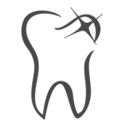
VISITING HOURS:
Week Days - 9 am to 8 pmSundays - Only Emergency Cases
How Thumb Sucking Affects Kids Teeth?
Children have an innate tendency to suck on their thumb or any finger. Some babies develop this normal habit even before they are born. It’s a soothing experience that allows newborns to connect with and discover their environment. However, if a child continues to suck beyond the age of three, they may encounter biting difficulties.
Thumb sucking doesn’t always cause damage to the teeth or mouth. Normally, no damage is caused by passively holding the thumb in the mouth. Despite this, active thumb sucking with lots of movement can cause damage to baby teeth, but it usually corrects itself with the emergence of permanent teeth. If your child persistently and vigorously sucks their thumb, it may lead to the improper alignment of their permanent teeth and have an impact on the jaw or the shape and roof of their mouth. Your child may also be exposed to dirt, bacteria, and viruses through thumb-sucking.
Does Thumb Sucking Have an Effect on Teeth?
According to a study in Pediatrics, children who have a habit of thumb-sucking are less likely to develop allergies to pollen and dust mites when they grow up. When deciding whether or not to allow thumb sucking, there are several factors to take into account. Additionally, thumb-sucking does not always result in tooth decay or other oral health complications.
Also Read: Common Symptoms of Tooth Decay
Here are some of the problems that show how thumb-sucking affects kids’ teeth:
Open Bite: With continued thumb sucking, the front teeth may gradually shift forward, and the back teeth may gradually move backward, resulting in an open bite. When the mouth is closed, the upper and lower teeth don’t touch, causing difficulties in chewing and speaking.
Speech Impairments: Consistently sucking the thumb can impact the growth of the mouth and teeth, leading to speech issues like lisping or struggling to express specific sounds.
Mouth Breathing: Kids who suck on their thumbs or fingers for a long time may develop a habit of breathing through their mouths rather than their noses. This leads to symptoms like dry mouth, foul breath, and various oral health issues.
Increased Risk of Infection: Children who regularly suck their thumb face a higher chance of developing mouth and thumb infections.
Dental Problems: Sucking thumbs can narrow the roof of the mouth, causing dental issues like crowded or misaligned teeth. To prevent oral effects, it is important to discourage prolonged and excessive thumb sucking in children. Seek guidance from a pediatric dentist if the habit persists.
How Long Is It Safe for a Child to Suck Their Thumb?
If you’re concerned about your child’s thumb sucking or if they are over 4 and still frequently suck their thumb during the day, reach out to a pediatrician or dentist. They might suggest treatments or strategies for you to try to help your child quit thumb-sucking. They might suggest allowing your child to keep up the behavior until they stop naturally, even if it affects their baby teeth. Sometime between ages 2 and 4, most children stop sucking their thumbs without any intervention. Your child’s permanent front teeth alignment and the shape of their mouth can be affected by consistent or vigorous thumb sucking that lasts beyond a certain age.
Tips for Stopping Your Child From Sucking Their Thumb
The best chance of success in getting your child to stop sucking their thumb is if they also want to stop. Depending on their age, you may need different strategies to help your child stop thumb-sucking. Talking to your child may be sufficient with older children, particularly if they have faced teasing from other children about the practice. Peer pressure has a significant influence on young children entering preschool or kindergarten. The best way to handle it is to ignore the behavior if your child refuses to stop sucking their thumb. It becomes more persistent when you pay more attention to it.
Positive Reinforcement: Encourage your child to stop thumb-sucking by praising them for not doing it or using a sticker chart to track their progress.
Gentle Reminders: Calmly ask your child to stop thumb-sucking if they do it absentmindedly. Be ready to do this over and over again. This method is effective only if your child is willing to receive help in quitting thumb-sucking.
Ask the Dentist for Help: The dentist can talk to your kid about sucking their thumb and tell them about the damage it can cause.
Orthodontic Device: Thumb-sucking can be prevented using removable and nonremovable orthodontic devices. You can consult with a pediatric orthodontist to decide which type is best for your child.
Thumb Shields: If your child wants a reminder to stop thumb sucking, there are soft plastic or fabric thumb guards available without a prescription in various types. Your child can wear these at all times or when they are most prone to thumb-sucking. If your child sucks their thumb while sleeping, you can cover it with a glove, mitten, or sock. Keep in mind that your child can’t control sucking their thumb while sleeping.
Thumb sucking is among the reasons why it’s crucial to keep up with your child’s dental exams from age one. If you’re worried about how thumb sucking affects kids teeth, reach out to Dentique. Our pediatric dentists will provide a comprehensive assessment and suggest a suitable course of treatment if needed. Most dental problems resulting from thumb sucking can be corrected through early intervention.
OUR
TREATMENTS
TREATMENTS








